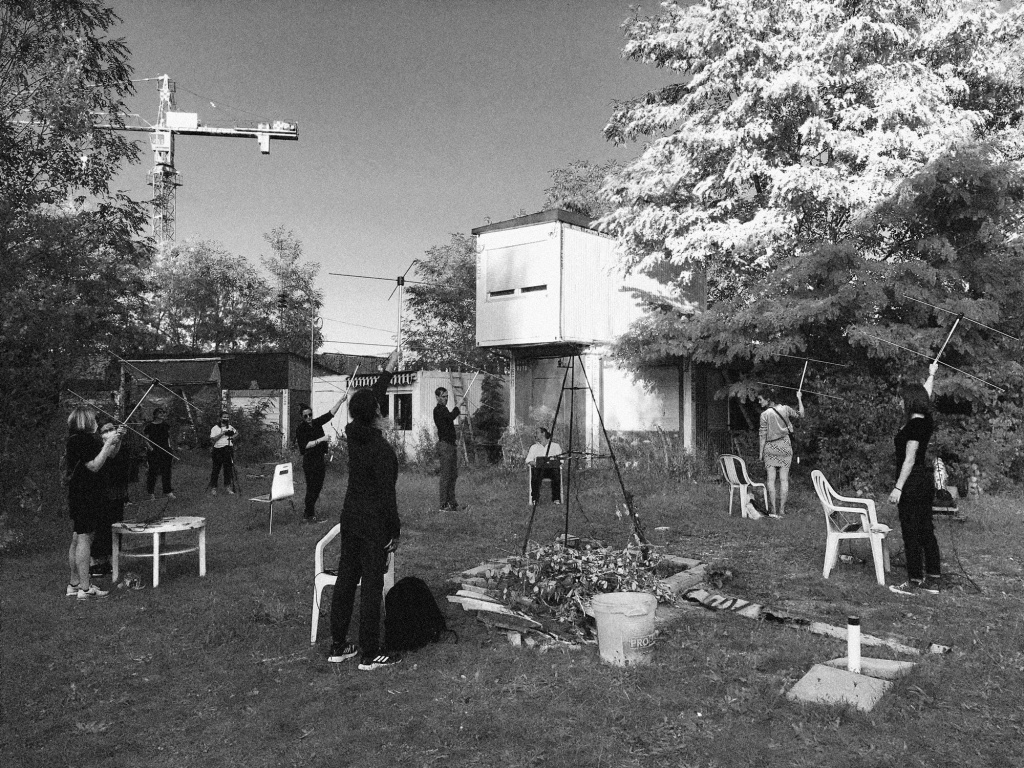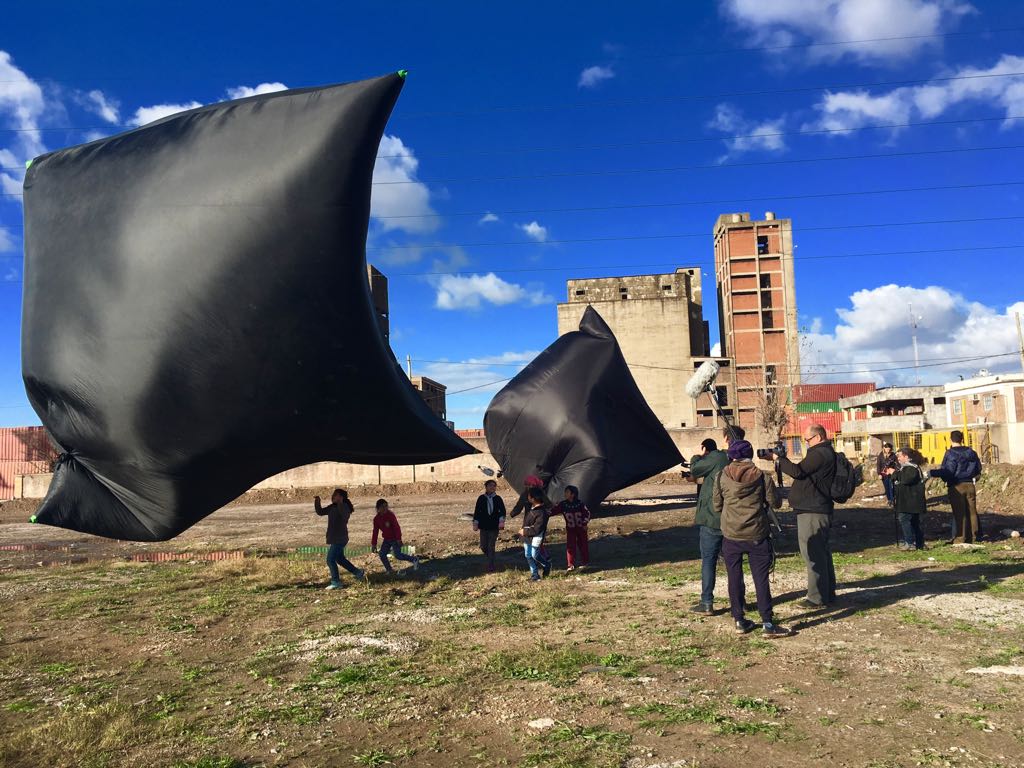After introductions from returning and newly joined ‘surgeons’, our first Landscape Surgery meeting of the term focused on Sasha Engelmann’s new AHRC-funded fellowship on Advancing Feminist and Creative Methods for Sensing Air and Atmosphere.
Running from September 2022 until September 2024, Sasha’s fellowship is focused on developing citizen-led sensing of both air quality and weather. It draws on, and aims to contribute to, wider work on citizen sensing by scholars including Nerea Calvillo, Jennifer Gabrys and Max Liboiron. One key topic for discussion was how feminist thinking emphasises the relationality of environmental data, and promotes an environmental sensing committed to care as well as precision. We also reflected on how creative methods can advance these agendas, in particular when they foreground the sociality of environmental knowledge making.

open-weather, 2020. Decoding weather satellite transmission during a DIY Satellite Ground Station workshop led by Sasha Engelmann and Sophie Dyer at the Wagenhallen Kunstverein Cultural Centre in Stuttgart, Germany. (Photo courtesy of Sasha Engelmann)
The fellowship focuses especially on two projects. First, open-weather, where Sasha is working with Sophie Dyer and other collaborators on developing citizen-led weather monitoring networks that form an international ‘open-weather’ community, decoding weather satellite transmissions to image and imagine Earth’s weather systems. Second, a project on air quality in Villa Inflamable (‘the flammable town’, situated next to the largest petro-chemical facility in Argentina). Here Sasha will be working with residents of the town, Buenos Aires-based anthropologist Dr. Débora Swistun, the artistic Aerocene Community and others, to develop forms of air quality sensing that are locally embedded and attuned to residents’ lived experiences.

Aerocene sculpture launch in Villa Inflamable, Argentina, 2018. (Photo courtesy of Sasha Engelmann)
The discussions rightly focused largely on the methodological ambitions and case study projects of the fellowship, but Sasha kindly pre-circulated a version of the proposal, which gave us all a chance to reflect on the crafting of not only a ‘case for support’ but data management plans, work plans and justifications of resources that can combine precision with ethoses of collaboration and co-production.
The group’s thanks are extended to Sasha for sharing her work with us. Learning more about what she has planned for the next two years provided a suitably energising start to the new academic year.
Philip Crang
